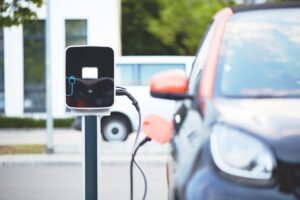
Apple has reportedly abandoned its ambitions to manufacture electric vehicles (EVs) after a decade of speculation surrounding the tech giant’s involvement in the project.
The company has never officially confirmed its plans, which were rumoured to include around two thousand employees. According to Bloomberg News, numerous staff members from the project will transition to Apple’s artificial intelligence (AI) division.
Apple’s decision to exit the EV market comes amidst a burgeoning demand for AI in consumer electronics, as highlighted by research firm Counterpoint. This shift shows Apple’s broader exploration beyond its core products, including ventures like the recently launched Vision Pro virtual reality headset.
According to the reports, Jeff Williams, Apple’s chief operating officer, along with Kevin Lynch, a vice president overseeing the project, announced the discontinuation to employees. Bloomberg further states that layoffs are anticipated, although the exact number of affected workers remains unclear.
Rumors regarding Apple’s covert car initiative, dubbed Project Titan, initially surfaced in 2015. Operating under CEO Tim Cook’s Project Titan umbrella, the Apple car team was allegedly known as the Special Projects Group.
Over the years, Apple recruited key personnel from companies like Tesla and Canoo to spearhead the project. However, setbacks, including leadership changes and internal challenges, hindered progress.
Recently it was suggested that Apple was still actively pursuing the project, with activities such as testing autonomous driving technology and postponing the expected launch to 2028. However, the company’s made the decision to prioritize AI and has made large investments in its development, including the creation of its AI model, Ajax.
Additionally, the EV market has witnessed a slowdown due to elevated borrowing costs, intensifying competition among major players to capture market share. Despite this,
Counterpoint forecasts significant growth in AI adoption in consumer electronics, projecting over 500 million users by 2027. “Preliminary data suggests shipments of generative AI smartphones will exceed 100 million units in 2024,” said one of its senior analysts, Ivan Lam.



